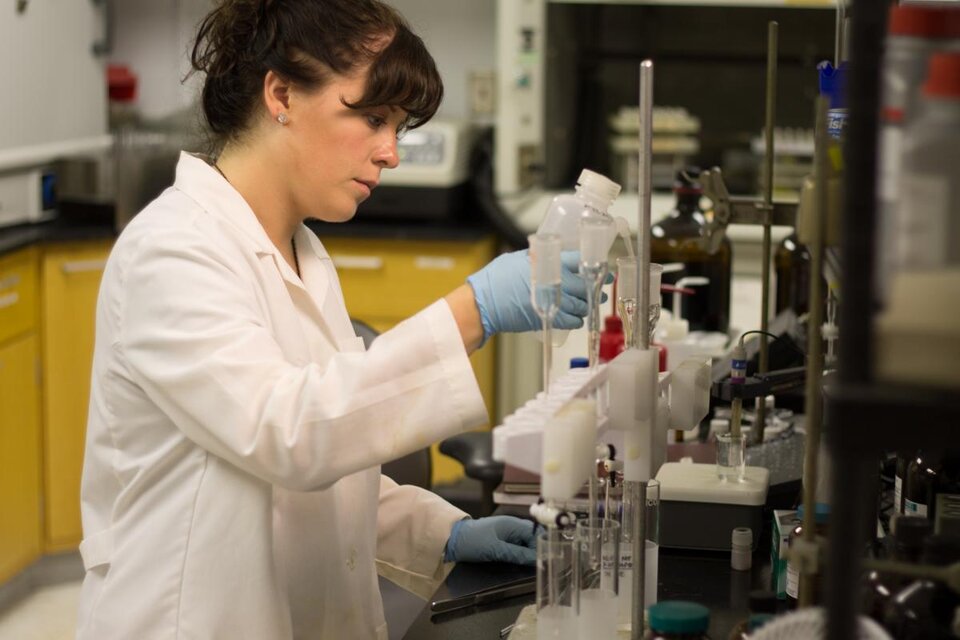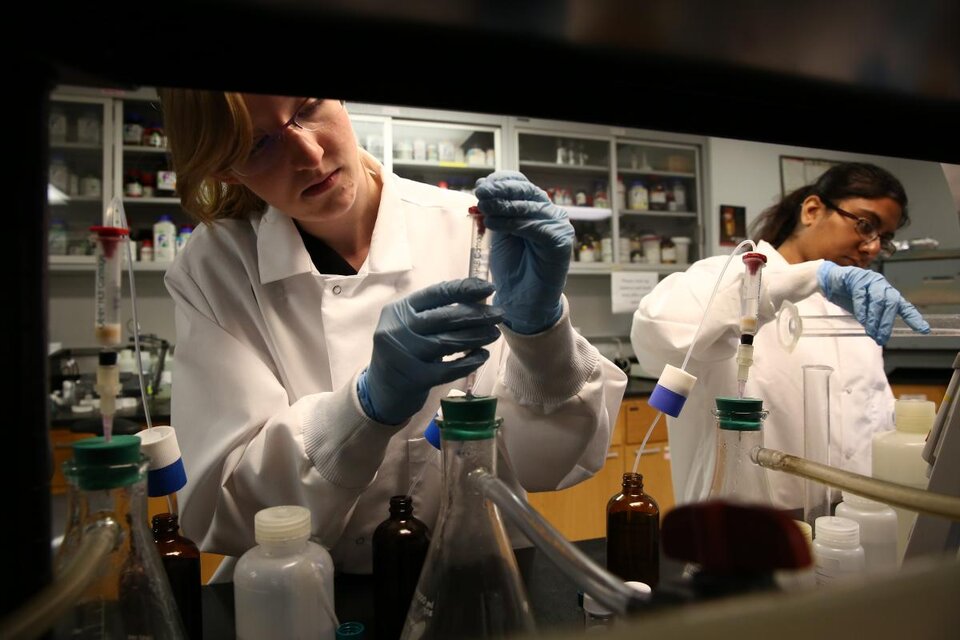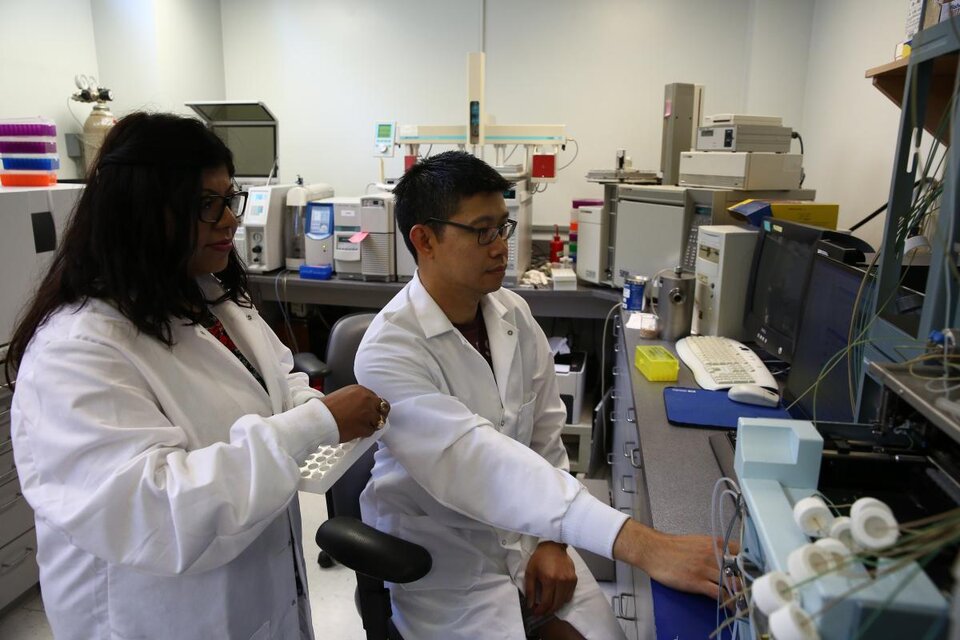Content
The Water Sciences Laboratory has been providing professional services to businesses, academic researchers, and government entities since the early 1990s.
The Water Sciences Laboratory (WSL) was established as a core research facility at the University of Nebraska-Lincoln as part of the Nebraska Water Center in 1990. The facility was created to enhance and support NU water research as a state-of-the-art laboratory that could provide technical services and expertise in analytical and isotopic methods.
To this end, WSL provides specialized instrumentation and methods for organic contaminants, heavy metals and for stable isotope mass spectrometry. WSL ’s faculty, staff, and students have analyzed thousands of samples at the facility over the past 25 years.
Learn more about the Water Sciences Laboratory
Environmental Mass Spectrometry
The Water Sciences Laboratory specialize in environmental mass spectrometry and chromatography for the detection and quantification of chemical contaminants including new groups of pesticides, as well as emerging microcontaminants such as antibiotics, veterinary pharmaceuticals and steroid hormones. A few of the newer methods that have been developed include:
- Steroid hormones and mycotoxins by liquid chromatography tandem mass spectrometry LC/MS/MS – APPI
- Microcystins and cyanoneurotoxins (anatoxin-a, BMAA, saxitoxin, cylindrospermopsin) by LC/MS/MS
- Veterinary antibiotics in water, soil, and passive samplers by LC/MS/MS
- Municipal and domestic wastewater (caffeine, carbamazepine, methamphetamine, and others) by LC/MS/MS
Stable Isotopes
The Lab offers state of the art methods for stable isotope analysis of gases water and solids using stable isotope mass spectrometry.
- Nitrate (15N-NO3 and 18O-NO3)
- Phosphate (18O-PO4)
- Ammonia (15N-NH3)
- Water (HD and 18O-H2O)
- Helium-3/4 in ground water by noble gas mass spectrometry, including N2, Ar, Ne, Kr and Xe
Standard testing methods
Finally, the lab also offers a relatively complete set of nutrient and water chemistry methods such as:
- Nitrogen (TN, TKN, TDN, NO3, NH4)
- Phosphorus (TP, TKP, TDP, O-PO4)
- Major ions (anions and cations)
- Trace elements by ICPMS
- General water chemistry (pH, conductivity, dissolved oxygen)
- Total suspended, dissolved, and volatile solids (TSS, TDS, TVS)
- Microcystins by ELISA
- Chlorophyll by HPLC
- Biological and chemical oxygen demand
We even have ASBC methods for hops testing, including α-acids and β-acids, and hops storage index (HSI)!
Our available methods are constantly being updated. However, if you have a custom-application not currently listed, contact us and we can discuss method development.
Training

Guidance and equipment to support your research
The Water Sciences Laboratory is here to support your research needs -- whether you are an experienced faculty member or a student. We provide individualized training, consultation, equipment, and bench space to members of the NU community.
Educational Services
INDIVIDUAL TRAINING
The Water Sciences Laboratory provides educational training opportunities for undergraduate students, graduate students, and faculty within the University of Nebraska system. The WSL also extends trained users the opportunity to use the WSL facilities and equipment to run their own samples at a reduced cost.
Interested in becoming a facility user? Contact the Lab and one of our staff will be in contact to set up your on-boarding session!
SEMINAR COURSES
Staff at the WSL are actively developing short-course workshops and technical skills seminar courses for sediment and water quality analyses. Check back soon for more information about the programs.
EDUCATIONAL PROGRAMS
The Nebraska Water Center and Water Sciences Laboratory are jointly invested in a number of university-wide, national, and international educational programs that provide short-term training opportunities for students and early-career faculty.
- Nebraska Water Center Water Advancement and Research Innovation Fellowship program
- WSL Interns Program geared toward sophomore and junior undergraduates

